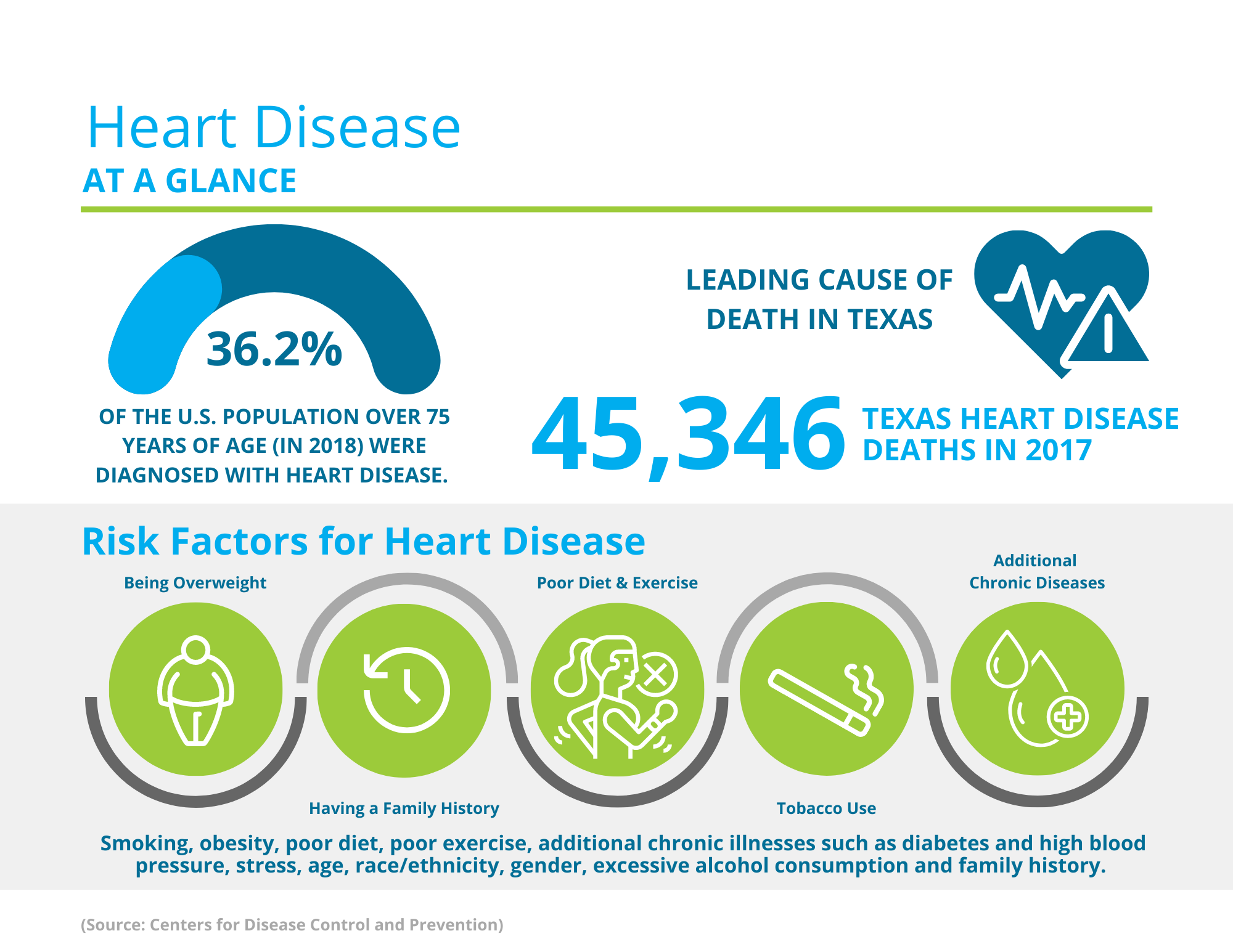
What is heart disease?
Heart disease encompasses several issues such as cardiovascular disease, blood vessel disease, heart disease, or abnormal heart beats (arrhythmia). Heart disease is a very common disease in the United States, and causes 1 in 4 deaths yearly. Heart disease can lead to heart failure, heart attacks, stroke, aneurysm, or possible cardiac arrest. Following your doctor’s advice and treatment plan is very important to manage heart disease, and try to prevent further complications.
Causes?
Since there are many forms of heart diseases, there are also many possible causes behind heart disease. Coronary artery disease is most commonly caused by a build of plaque in the arteries. The fatty plaques (a deposit that forms) may form in the arteries and decrease blood flow due to poor diet, poor exercise, smoking, and obesity. Irregular heart beats, also known as arrhythmias, can be caused due to coronary artery disease, diabetes, high blood pressure, excessive alcohol, smoking, stress, or heart defects (such as birth defects). A heart infection that can lead to heart disease may be caused by a virus, bacteria, or parasites. There are many possible causes, so it is best to speak with your doctor if you are diagnosed with heart disease about what the cause may be.
Diagnosis & Treatment?
Diagnostic testing for heart disease may be conducted in several different ways. Blood testing may be completed to look for any abnormalities. Imaging tests that may be conducted are an EKG, Echocardiogram, stress test, a CT scan, or a MRI. Your doctor will also complete a complete social and medical history including other medical conditions, medication, BMI, diet, exercise, family history, and history of smoking.
Treatment for heart disease is dependent on type of heart disease and severity. One treatment option may be lifestyle changes that include stopping smoking, regular exercise for about 30 minutes a day, cutting out fatty and sweet foods, and eating more fruits and vegetables. Doctors may also prescribe medication to control symptoms and decrease progression of heart disease. In addition, surgery may need to be completed to control heart disease. Follow all recommendations by your doctor.
Prevention?
Prevention of heart disease can be done by controlling risk factors. Some factors such as birth defects, genetic conditions, race/ethnicity, gender, or age can not be prevented. However, some lifestyle changes that can decrease the chance of developing heart disease are to not smoke, avoid excessive alcohol consumption, maintain a healthy weight, maintain a healthy diet, regular exercise, manage stress, and manage any other medical conditions you may have.
To learn more about heart disease click here: https://www.cdc.gov/heartdisease/index.htm


